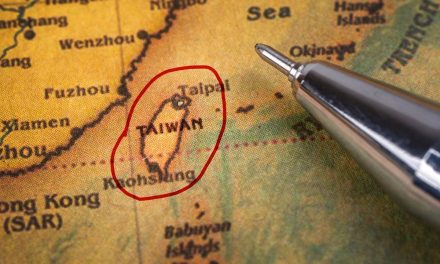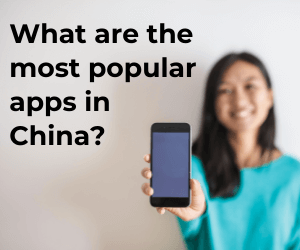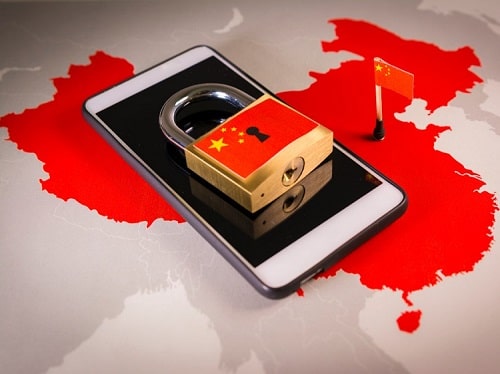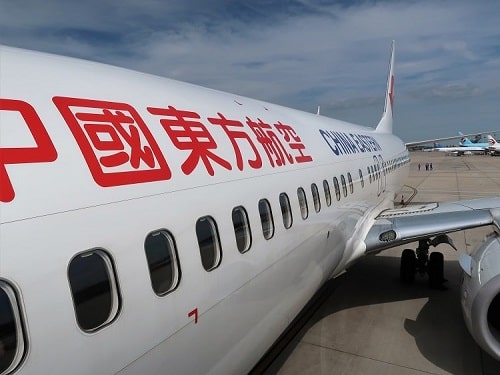I’ve stayed in countless hotels in China over the years.
While I don’t want to think about all the money it’s cost me, I can happily say I’ve become very familiar with all the different booking apps out there.
So, what’s the best China hotel booking app?
Well, in this short article, I’ve separated the wheat from the chaff to help you.
1. Trip (formerly Ctrip)
After lots of visits to China, this is still my all-time favorite.
Trip is China’s largest online travel agency. In my opinion, it’s also the easiest to navigate, and you’ve got hotels, flights, and high-speed train bookings all in one place.
I’ve lost count how many bookings I’ve made on Trip. As Tina Turner would say, it’s simply the best.
Pros: Great bundled deals on hotels and flights. Quick refunds if you change your mind.
Cons: Their loyalty program, Trip Coins, pays you peanuts.
Link opens in a new window. This is a reader-supported affiliate link.
2. Qunar
This is the hotel booking app that all the locals use.
The name Qùnǎr (去哪儿) means “Where are you going?” in Chinese.
I can’t say I’ve used this app yet, because I’m still madly learning Chinese characters, and I don’t have the confidence to book the right accommodation on the right date.
But if you’ve got the confidence – and the ability – then go for it.
Pros: Because this app is for the locals, hotel prices are often cheaper than the English ones on this list.
Cons: It’s in Mandarin with no English option.
Link opens in a new window.
3. Agoda
Agoda is popular in lots of Asian countries, China included. I used to book with this app a fair bit, but I’ve stopped lately.
Nothing bad happened – I just prefer having all my bookings (hotels, flights and bullet trains) all in one place, i.e. on Trip.
Pros: It’s one of the few foreign hotel booking apps that Chinese hotels know.
Cons: You can use it for hotel bookings and flights, but not the trains in China.
Get the Agoda app on Google Play or Apple iOS.
Links opens in a new window.
4. Booking
This is probably the most well-known hotel booking app in the world (Booking.yeah!). So, you can rest assured that all the big hotels in China have had experience with this hotel app.
I haven’t booked any China hotels with Booking for a long time, but it’s a still good one.
Just stick with the global version, not the Chinese version which requires a Chinese phone number for reservations.
Pros: One of the few foreign hotel booking apps that Chinese hotels know.
Cons: I find the app messy navigation-wise and it gives me anxiety with all the alerts. I can also find better bundled deals on Trip.
Link opens in a new window.
5. Hostelworld
OK, technically this isn’t a China hotel booking app. It’s for hostels.
But hear me out on this – I’ve found that hostels in China can be really nice, and sometimes supremely nice.
Dirty backpackers don’t really exist in China. (Sorry to all the backpackers! Lol.)
Pros: I appreciate the simple layout of the app and website. It makes booking quick and easy.
Cons: There aren’t many hostels in China to choose from, but this isn’t Hostelworld’s fault. Chinese hostels probably don’t want the responsibility of lodging foreign guests’ passport details with the local police station, which is a requirement for Chinese accommodations.
Link opens in a new window. This is a reader-supported affiliate link.
6. Fliggy Hotel (within Alipay)
If you want to pay for anything while you’re in China, you’re going to want to download Alipay.
But Alipay isn’t just for payments, it’s basically a way to organize your whole life. One of the extra features is hotel bookings, and Alipay has partnered with Fliggy Hotel for this.
The app is in Chinese, but you can use Alipay’s floating ‘translate’ button to help.
Pros: You can feel safe knowing that Alipay only partners with legitimate businesses.
Cons: Toggling between Alipay and Western apps is a pain, because you have to turn off your VPN to use Fliggy (more on VPNs below).
Get Alipay on Google Play or Apple iOS, or visit the Fliggy website directly.
Links opens in a new window.
7. Tongcheng (within WeChat)
In case you haven’t heard, WeChat is China’s top app.
And like Alipay, it has a preferred hotel provider that comes inside the app. Just go to Me > Services > Travel & Transportation.
As far as I can tell, there’s no English version of the app, so you might want to use Tongcheng’s English-language website instead (which is a redirect from their Chinese website, www.ly.com).
Pros: You can feel safe knowing that WeChat only partners with legitimate businesses.
Cons: The app doesn’t have an English version, so you have to use their website unless you can read Mandarin. And call me a sceptic, but the reviews look questionable (“I really admire LY.com” says a Sally Clark).
Link opens in a new window.
Using Alipay or WeChat to book your hotel

Booking a hotel in China using WeChat or Alipay is a little harder. Image by Jirapong Manustrong on Shutterstock.
You’ll first need to set up your foreign bank card on the app to activate purchases.
This can take a couple of days to validate due to the security check. And not all cards are accepted.
But remember, you’ll need to be able to read Chinese or be able to use a translator to use the in-app hotel booking sites.
Is using a China hotel booking app better than booking directly through the hotel?

Booking direct could cost more or take more time. Image by Pixabay on Pexels.
From my own experience in China, the hotel rack rate (the price displayed in the hotel lobby) is always higher than what you can get on the apps.
But hotel rack rates are known for being notoriously high so that any discounts look generous by comparison.
If you have your heart set on a particular hotel chain, say the Marriott, then by all means use their app and see how prices compare with Trip.
But booking apps that have hundreds of options can be better than booking directly through a hotel because of all the discounts you can get.
No one I know in China books directly through the hotel.
Psst! A quick travel tip
Did you know that you won’t be able to access major foreign websites and apps in your Chinese hotel using Wi-Fi?
I’m talking about Google, Insta, Facebook, WhatsApp, TikTok, YouTube, Gmail, and tonnes more.
That’s why you need a VPN in China, unless you want to churn through overseas data which will cost you an arm and a leg.
Please take a read of my review of the best VPN for China. Otherwise, you can skip the review and tap on the button below for the one I recommend most.
Link opens in a new window. This is a reader-supported affiliate link.
Just remember to download your VPN to your devices before you land in China, otherwise you won’t be able to get access.
You’ve got my pick
Alright, now that you’ve got my pick of the best China hotel apps, it’s time to book!
As I mentioned, Trip is my favorite as it’s widely used and accepted in China, it’s the easiest to use, and you can use it for bullet train bookings which most of the others don’t offer.
Have an amazing stay in China. And don’t forget your VPN.
I hope you liked my article. If you’re not ready to book, then have a squiz at my top China travel tips for more juicy China goodness.
Main image credit: Tada Images on Shutterstock.
FAQ about China hotel booking apps
What is the best hotel booking website in China?
It’s Trip for English speakers, while it’s Qunar for Chinese speakers. Both apps are focused on China and you can also book high-speed trains on their apps, which everyone uses now.
What is the best app for booking flights in China?
Trip is the best (for English speakers) as they’re China focused and you can link up your flights with hotels and bullet trains, often with discounts or bundled offers.
Is booking.com used in China?
It’s used by some foreigners visiting China. The locals don’t use it.
What’s the best app to download for travel in China?
It’s a VPN app like ExpressVPN. Without a VPN in China, you’ll find traveling around very hard, unless you use (and can understand) Chinese apps.
Is Airbnb no longer in China?
Airbnb withdrew from the Chinese market in July 2022. This is due to the complex business environment in the country. Alternatives include Tujia and Xiaozhu, which are in Mandarin.


















